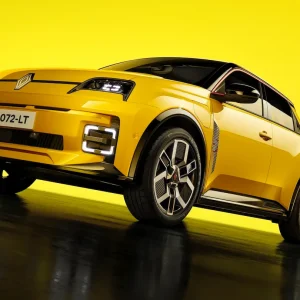BMW is reporting a surge in interest from cash allowance employees who want to opt back into company car schemes.
Research it has conducted with customers showed that almost three-quarters expect their company car fleets to grow because of the appeal of plug-in vehicles, while a similar proportion are reviewing their policies with a view to adding more EVs.
Rob East, general manager for corporate sales at BMW Group, said: “All of our customers want to talk about electrification and are asking us how we can help them to electrify the fleet.
“Around 75-80% of our customers are undergoing policy reviews and reassessing whether their current regime is fit for purpose, and looking at how they can add more EVs to their fleets.
“We’re seeing the company car become more appealing again. Where customers were opting out and taking a cash allowance, many are seeking to opt back in through a PHEV or EV. Our research showed 72% of our customers expect their fleets to grow as a result of cash takers wanting to come back to company car schemes.”
East added electric vehicles have been thrown into sharper focus by the proposed ICE ban in 2030, but also that the BIK tax system supports the adoption of EVs with low payments for the next few years.
He said that combined with noticeable improvements in the electric vehicle charging infrastructure and other behavioural changes, electric vehicles are bringing people back into company cars.
“Working from home during the coronavirus pandemic has given more customers the confidence to choose electric. Mileage profiles have changed so dramatically that many now feel an electric car would meet their needs.”
East said that as an early entrant into the electric vehicle market with the i3 in 2013, BMW Group now has around a million plug-in vehicles on the roads, and around a quarter of group production is currently either an electric or plug-in hybrid car.
It comes as BMW announces sales of its latest electric car, the iX3 and the IX, the latter being a new SUV using an electric-only platform with a choice of battery capacities and power outputs, and prices ranging from just under £70,000 to more than £90,000.
It will also launch the i4 electric four-door coupé in the coming months.
East added that BMW has taken the reduced sales activity of the pandemic to rebalance its mix in the corporate sales sector, reducing its participation in daily rental by 45% during the first four months of 2021, on top of a 50% reduction in short-cycle business in 2020.
As the market has rebounded in 2021, East said BMW has made a conscious decision not to chase market share.
” It’s about the quality of business and rebalancing supply and demand,” he said. “We’re focusing on sales to proper customers this year, both retail and fleet in large corporates and SMEs.
“This has allowed us to reduce our short-cycle business, which will help improve residual values. 3 Series has seen a 10% improvement over the last year. There is much debate over how long it could last, but for now the used car market is particularly buoyant.
“A lot of brands talk about the SME opportunity, we know it’s challenging – those drivers are more like retail customers – but through a series of interventions, particularly through our business partnership programme that we manage through our colleagues at Alphabet, we want to ensure we give those customers the right level of advice about taxation, write-down allowances and so on.”





